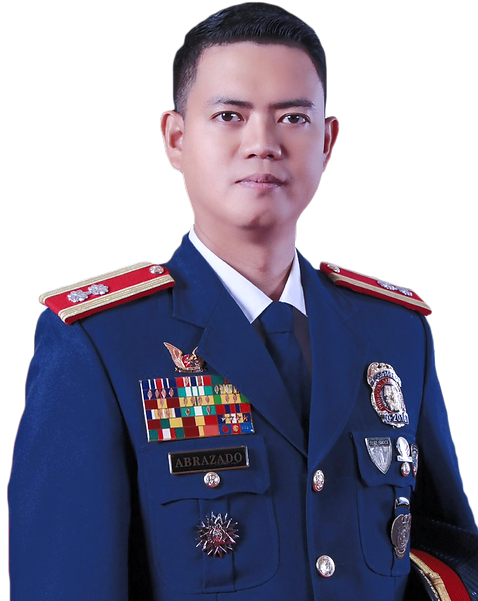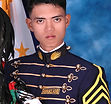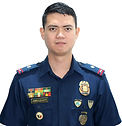

Student
Leader
LEADERSHIP IS A JOURNEY
Everyone has a leadership story to tell. This is mine to share.
Leading people is something I've been pretty familiar with. It started within my family. Being the eldest among five siblings, I have been the pacifier of my four stubborn brothers since I was young. There was no social media back then, so the usual form of entertainment was physical activities, which usually resulted in conflicts. I get to break the friction as the authority among us, even though I'm sometimes involved in the conflicts as well.

Police
Officer
Volunteered to join SAF to start his career with a desired physical and mental discipline

Cadet
Officer
"Regarded as the "Marcher Forever" for being the Classroom Marcher (Beadle) from 1st to 4th Year in the Academy.
A Cadet Officer, A Commandant's Lister and the Barracks Commander"

"Sgt -at-Arms, Boy scout, the usual Beadle of the class and A PMT Officer. School days were full of leadership experiences"

"The eldest among five siblings who leads his four rowdy brothers since they were kids. "
Big
Brother
I love my brothers. I took care of them when my parents were away. Our age gap is tight, with only about a year interval. In seven years, my mother gave birth to all five of us. We may be living our individual lives today, but we have maintained that strong bond of true brothers. It is heartwarming every time I hear them thanking me for being a good brother who has been a good example to them.
During my elementary days, I was usually selected as the Sergeant-at-Arms entrusted by the teacher to list down the names of classmates violating classroom rules. My mom laughs, even today, every time she tells the story when she sees a page in my notebook with a list of names titled “Speak in Bicol is the collect 25 centavos”. What I meant was, “List of names of those who spoke in Bicol dialect to be fined with 25 centavos”. I also got into fights for enforcing class rules and reporting violations by my classmates to our teacher. My father always allowed me to join Boy Scout activities held in different locations, even in other Regions, to expose me to leadership activities. Once, I joined a National Jamboree Convention, being the youngest in our contingent.
During high school, I was the usual class Beadle. The last name “Abrazado”, who is always the first on the alphabetical class list, is the lucky one being designated as the class beadle. Thus, I am usually the one who absorbs the “whip” of the teachers, every time the class gets unruly. Since I was a kid, I have always been astounded by men in uniform. I joined the Philippine Military Training (PMT) as an officer and led a platoon of my high school classmates. I was part of the contingent that participated in the Military Parade during the Regionwide Festival, where we received two title awards: the Most Disciplined and Best Marching Unit.
My dream of becoming a Policeman developed as I grew up. I only remember three professions that I wanted to become when I was a child. To either become a Policeman, a Scientist, or a Priest. But to become a Policeman is at the top of the list. The main reason I have that drive is that my father inspired me to become one. We always spent our academic break in different Police Stations, which he led as the Chief of Police during our childhood years. We even had to transfer schools to join our father in one of his assignments. At a young age, I witnessed my father running several Police Stations and leading his men to accomplish their daily missions and tasks. As far as I can remember, he has been a leader even after his retirement.
I know my father is a great leader. In every police station he handled, his men consistently provided positive feedback about him. Accordingly, my father’s style of leadership is praiseworthy compared to others. Even today, long after his retirement, I still meet his former subordinates who speak only of his accomplishments and praise when he was their leader. Being an alumnus of the Philippine National Police Academy (PNPA), he always brought us to the Alumni Homecoming in Silang, Cavite. It was the time when I saw cadets in their shining gala uniform, perfectly lined up as they marched during parades, displaying leadership and discipline. To my amazement and fascination with the PNPA and the Cadets, my father did not even have to convince me to join the Academy, as my eyes had been locked on this institution since I was a child.
Through a year of preparation, determination, and willpower, I was able to enter the PNPA in the year 2004, belonging to the few but amazing Oman-Silang Class of 2008. As a class, we poured out our blood, sweat, and tears and reached the end of our temperament. Together, we endured many things that I never thought a human mind and body could tolerate. Perhaps all the hardships I faced during cadetship pale in comparison to my desire to become a leader. During my entire cadetship from 1st year to the fourth year, I was designated as the Class Marcher. I didn't volunteer to lead, but I'm not sure why my classmates always choose me. That is why I got the title, “Marcher Forever''.
Leading a classroom full of classmates, with hard-headed ones, is undoubtedly a challenge. It is where my leadership skills have developed further, from leading siblings, elementary classmates, and high school classmates to now fellow Cadets. It started to become a real deal. I was offered a Regimental position, but I preferred to lead a Platoon where I could closely supervise my subordinates. I aspire to lead men on the frontlines as the direct officer commanding, standing in front of them during parade ceremonies. I was also designated as the Barracks commander, where I implemented the standards expected in a quarter inside the Academy, to include the order and discipline of the Cadets under my roof.
A few days before our graduation, the time has come for us to choose our preferred assignment. The top students got the chance to choose first among the limited slots. When my name was called, all regions were still available, so I could select the most conducive region for my first assignment if I wanted to. But as one of the youngest in the class, I chose to take the foundational courses that would be most valuable in the PNP ranks. That is why I volunteered to join the Special Action Force (SAF) above any favorable assignments. I aim to refine my tactical and leadership skills by leading highly skilled and disciplined men in the country's most dangerous operational areas. During my term in SAF, I progressed from Team Leader to Platoon Leader, Section Leader, Deputy Company Commander, and ultimately to Officer in Charge and Company Commander, leading about 60 personnel.
If there is one Unit in the PNP where you can find the most disciplined and technically and tactically proficient personnel, I would vouch for SAF. It is where you can see the strong bond of a leader and his men, especially those on the frontlines, for we must work together to ensure survival. We bled and sweated during training so that we have less chance of it on the battlefield. Those seemingly endless brutal training not only shape our physique but also our minds to make split-second decisions, which may result in failure of the mission or worse, loss of lives if wrongly executed or delayed. That is why leadership in SAF is extremely sensitive at all levels.
Choosing SAF as my first assignment was the best decision after graduating from the Academy, as it allowed me to start my career in the PNP with the desired physical and mental discipline. This is something that I notice lacking in new graduates and recruits nowadays.
I planned to stay in the SAF until I reached the position of Battalion Commander; however, my service in that Unit was cut off as I was ordered to render service to the late DILG Secretary Jesse M. Robredo. With my 1 year of service to him, I have witnessed a different kind of leadership. People call it the “Tsinelas” Leadership, which targets the rural grassroots and implements poverty alleviation programs. It amazes me how unique and genuine this strategy is in pursuing change compared to the leadership styles of other politicians who prefer showmanship and “pakitang-tao”. On and off camera, Sec. Jesse was a working leader who hated special treatment, despised corruption, and promoted transparency and accountability in local government. In most of his speeches I always heard the words “Meron mga lider na mahusay pero di matino, meron naman matino pero di mahusay. Ang kailangan natin ay mga lider na parehong Matino at Mahusay”. It was heartbreaking that God had taken Sec Jesse, amid his prime years in public service; however, it was still a blessing that his wife, Leni Robredo, took on the formidable challenge of carrying on his husband’s torch of transformation. If we really want to change this country, we need leaders who are “Matino at Mahusay” regardless of their political affiliations.
When I was asked where I wanted to be reassigned after my DILG detail duty, I knew where I wanted to be. I wanted to serve in the Criminal Investigation and Detection Group (CIDG) because I was drawn to real police work, not for any other shady intention. This is where I began to learn the paperwork that I hadn't had the opportunity to hone in my previous assignments, which were more tactical in nature. This is where I realized the importance of documentation and scrutiny in narratives to ensure that reports are well-made and error-free, thereby preventing problems that may affect both the reputation and administrative aspects, as well as criminal liabilities.
A year later, the Republic Act 10175, or the Cybercrime Prevention Act of 2012, gave birth to the Anti-Cybercrime Group to spearhead the anti-cybercrime operations and investigations of the PNP. I volunteered to be a part of it, which opened a new world for me. As a young officer, I have seen the wide variety of dangers that victimize people, not in the physical world but in the cyber domain. Being a pioneer of a unit is a huge responsibility and challenge since we experienced the birth pains of starting everything from scratch. We had to create our own job descriptions, flowcharts, processes, and organizational structure as authorized by the Cybercrime Law, which gave birth to our Group. But it had brought the best in us. As new threats emerge online, we must work quickly and accurately, despite a shortage in personnel, training, and equipment. I had to use my laptop for work because the requests are still in process. I had to excel in the cyber field quickly, as I was managing both technically skilled personnel and untrained subordinates, whom I had to coach. They all looked up to me as their team leader and supervisor with so many expectations, thus I had to see to it that no matter how technical the assignment was, I must not fail them.
During my years of stay in ACG, I was involved in countless operations, investigations, and intelligence activities, leading my unit and personnel. We need to continuously upgrade our knowledge and acquire the technical skills expected from special investigators mandated to implement the law. ACG demanded leaders who can deliver initiatives, innovations, critical and out-of-the-box thinking, as it is not an ordinary unit. I am happy that during those desperate times, I was able to contribute. Learning the challenges in cybercrime investigations, I have crafted materials and delivered lectures to thousands of audiences nationwide and abroad, which has undoubtedly saved potential victims of cybercrimes. I have also led complex technical investigations uncommon to the PNP, which marked the beginning of a new form of investigation in my organization. In fact, the first conviction under the cybercrime law stemmed from the operation I led in 2013, culminating in a successful conviction of the accused in 2017.
The dream of becoming a Chief of Police came when I was given the opportunity to lead one of the most challenging Stations in the country, the Antipolo City Police Station. Spanning from Pasig City in Metro Manila to General Nakar in Quezon Province, with a vast land area larger than Quezon City, it was indeed the most challenging post I have ever handled, so far. During this term, my years of experience from SAF, CIDG, and ACG came in handy as it felt like I was fully prepared to handle such a heavy responsibility despite the odds. With limited personnel and mobility, like most police stations, and a vast area to cover, about a million population to serve and protect, I quickly learned to strategize and innovate. This is where I conceptualized projects that address urgent concerns that disturb the peace and order in my area of responsibility, such as shooting incidents, robbery cases, and illegal drugs. The implementation of innovative and inclusive projects led to a reduction in 8 Focus Crimes and shooting incidents in Antipolo City, compared to previous years, which were still in the quarantine period of the COVID-19 pandemic.
During my stint in Antipolo City, the Sangguniang Panglungsod passed a City Resolution which commended and congratulated me for my sterling accomplishments in the promotion and maintenance of peace and order in the City and for other purposes. This reflected the City’s heartfelt appreciation for all the efforts to maintain peace and order in the community. At the same time, one of the pioneer projects of Antipolo City Police Station, the “Red Alert Button,” was awarded nationwide as the best Anti-criminality project during the 29th National Crime Prevention Week of the National Police Commission.
My next assignment brought me to another landmark, the Cubao Police Station of the Quezon City Police District (QCPD). This gave me another opportunity to serve in one of the most progressive cities in the country. There is a saying that goes, “all roads lead to Cubao”; thus, another huge challenge in maintaining peace and order in the center of transportation and commerce. Luckily, we already have a template of interventions for various kinds of peace and order concerns, both in the operational aspects and community relations. And it turned out very well since we have maintained peace and order in my AOR despite the volume of population that the station secures 24/7. I was able to sleep well in this assignment, having our innovative interventions working effectively in place.
Following my tenure as Station Commander in Cubao, I was given the trust and confidence to lead the Kamuning Police Station 10 of QCPD, one of the most sensitive positions in Quezon City, which covers City Hall, QC Memorial Circle, and numerous vital installations, business establishments, and transportation hubs. Unexpectedly, not long after, I received the order to undergo the mandatory Officers Senior Executive Course (OSEC) for the first time. I then complied with the lawful order without applying for deferment.
The OSEC schooling is the latest and meaningful addition to my leadership journey. It widened my perspective on leadership after diving deep into historical and cultural roots and theories. Having all the relevant modules taught by competent and laudable subject matter experts, I realized that it still will not matter if leaders fail to make ethical decisions on essential matters and are not held accountable for their actions. Regardless of the history, culture, and traditions of any organization or country, and regardless of the leadership perspective within our respective organizations, there should be a universal standard for transparency and accountability.
Understanding these profound learnings will enable me to determine the most effective application of various leadership styles for different unit assignments, locations, activities, and conditions. These learnings will be a valuable addition to my leadership toolbox, guiding me on my long and winding leadership journey ahead.
As I reflect on this journey, from elder brother mediator to frontline commander, from cyber investigator and intelligence officer to a Chief of Police, I realize that technical and tactical skills alone are not enough. Passion and values matter. Without any of it, the PNP can never truly attain its mission and vision. None of us is perfect indeed, but the desire to continuously pursue excellence and always consider acting within the bounds of the law and ethical doctrines, makes a difference.
Before I conclude this leadership journal, I must acknowledge that my accomplishments and passion for work are deeply rooted in my family. They are my source of strength and inspiration, my wife and kids, who keep me going against all odds. They are the main reason I wake up every day. I thank God so much for everything I have and everything I can do. All these blessings and glory, I give back to Him.
This is my leadership journey, and it continues.
“Change will not come if we wait for some other person or some other time.
We are the ones we’ve been waiting for. We are the change that we seek.”
– Barack Obama, former U.S. President
Public
Servant

Family Man
Leadership starts at home. Leaders should excel in both their professional and personal lives to bring their organization to success while keeping a strong bond with family and loved ones.
A balanced and purpose-driven life.

The leadership experiences that were acquired through the years from previous assignments prepared him for his unit commander roles

